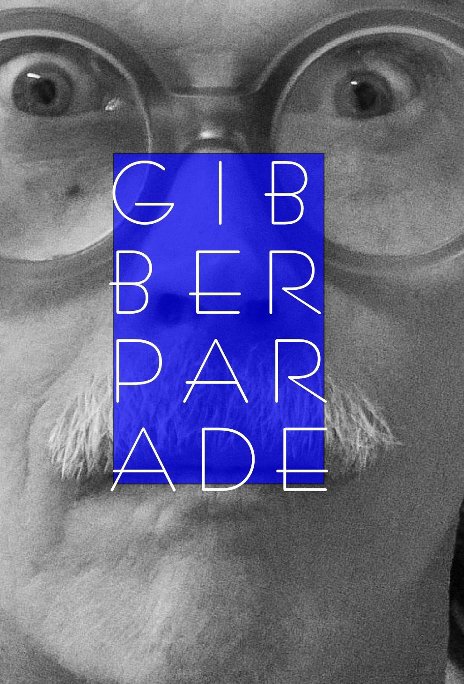About the Book
GIBBER means to speak rapidly, unintelligibly, or inarticulately. To talk in no known language.
In Australia, Gibber is a common term for small dark brown stones. Hopefully there are few Australian gibbers amongst the poems and tales.
The writing is in the raw, original format - unedited, unaltered. Misspellings, incorrect, inarticulate phrases may be the fault of the typist, voice recognition software, or the writer learning how to type. It could be a slip of the fingers or typo or intentional. Who knows? Consider the reading an adventure and each discovery of mangled expression cause for surprise. You may find the words seem little more than gibber, especially in the uncorrected speech recognition text. Bear in mind that I never learned to type. When I began recording my stories I used early-generation voice recognition programs and typists. My words often came back to me as typed gibberish. Some were funny, others simply confusing and inane.
Do allow such boo boos to put a smile on your face, rather than cringe. HOWL if you must.
Concerning PARADE, picture the poems and stories in terms of this definition: "to march up and down or promenade in a public place for the purpose of showing oneself". Think of the Thanksgiving Day parade viewed on your television, in which one can admire the giant balloons and check your laundry when the overt Broadway promotions hog the screen. I am all for the helium-filled critters.
There is no need to read page by page in numerical sequence. The writer suggests you open to a random page and commence. Take a break and hang your clean laundry.
If you wish, keep a red pen handy and circle each mistake you wish to document. There are a total of 273 mistakes in this book. How many can you find?
In Australia, Gibber is a common term for small dark brown stones. Hopefully there are few Australian gibbers amongst the poems and tales.
The writing is in the raw, original format - unedited, unaltered. Misspellings, incorrect, inarticulate phrases may be the fault of the typist, voice recognition software, or the writer learning how to type. It could be a slip of the fingers or typo or intentional. Who knows? Consider the reading an adventure and each discovery of mangled expression cause for surprise. You may find the words seem little more than gibber, especially in the uncorrected speech recognition text. Bear in mind that I never learned to type. When I began recording my stories I used early-generation voice recognition programs and typists. My words often came back to me as typed gibberish. Some were funny, others simply confusing and inane.
Do allow such boo boos to put a smile on your face, rather than cringe. HOWL if you must.
Concerning PARADE, picture the poems and stories in terms of this definition: "to march up and down or promenade in a public place for the purpose of showing oneself". Think of the Thanksgiving Day parade viewed on your television, in which one can admire the giant balloons and check your laundry when the overt Broadway promotions hog the screen. I am all for the helium-filled critters.
There is no need to read page by page in numerical sequence. The writer suggests you open to a random page and commence. Take a break and hang your clean laundry.
If you wish, keep a red pen handy and circle each mistake you wish to document. There are a total of 273 mistakes in this book. How many can you find?
Features & Details
- Primary Category: Poetry
- Additional Categories Literature & Fiction, Biographies & Memoirs
-
Project Option: 6×9 in, 15×23 cm
# of Pages: 208 - Publish Date: Mar 31, 2023
- Language English
- Keywords biography, poetry, painting, art, Paris
See More
About the Creator
Sandy Kinnee
Paris, France / Colorado Springs, CO
Sandy Kinnee is best known for his work on shaped, handmade paper. His work is in the collection of the Metropolitan Museum, Brooklyn Art Museum, Princeton University Art Museum, Portland Art Museum, Museum of New Mexico, Phoenix Art Museum, University of Michigan Art Museum, New Britain Museum of American Art, Madison Museum of Contemporary Art and many private and public collections. Part of each year he spends in France, where he writes and takes photographs. This series of books assembles the poems, short stories and photography into the themes that have gained critical mass over the years.


